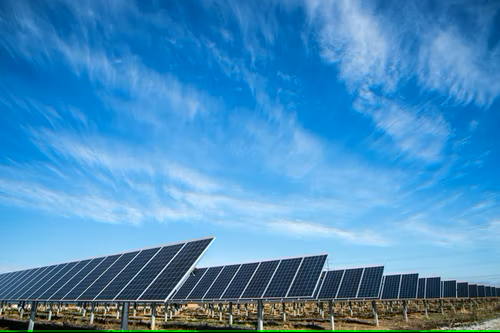Hardly any other policy area is at the center of debate as much as energy policy. This ensures that new ideas are constantly being dumped into the marketplace of opinion. And however good the intentions behind them may be, one thing is foreseeable: Every new idea hampers the transformation of the energy industry until it is implemented or dropped. The discussion about subsidized industrial electricity prices is an ideal example of this.
Energy-intensive companies could - according to the ideas of Economics Minister Harbeck - be supported with low-cost electricity in the future. This would secure jobs and keep industry in the country. In this way, the secure transition to an economy based on inexpensive renewable energies could be cushioned, according to the perfectly understandable argumentation. But it is precisely the energy transition towards renewable energy that is once again being hindered and delayed by this idea.
Why? Because industrial customers like to buy their energy on a long-term basis, needing predictable prices and conditions for their calculations. And because, on the other hand, projects for generating electricity from the sun, water or wind also require a secure basis for calculation in order to be implemented at all.
In recent years, industry as a customer on the one hand and the producers of green electricity on the other have come closer and closer together. Instead of simply feeding the electricity into the grid, individual supply contracts have been concluded with customers. Or some industrial companies had an entire wind or solar farm build in order to have long-term planning security for the price of their electricity.
But why should these plans be pursued further when there could be cheap electricity in the foreseeable future thanks to government subsidies? Some industrial customers are waiting to see if and how Harbeck electricity will come. So instead of accelerating the expansion of renewables, a holding pattern is being built in again. Projects are put on hold - and implementation starts much later.
Yet it is precisely the industrial companies that, with their energy needs, could quickly ensure a real energy turnaround by switching to green electricity. The ideal status quo of supplying industry with electricity from renewable energies to a large extent is thus postponed again. And with it, the transition phase in which electricity prices have to be subsidized will be prolonged.
The energy transition may therefore take longer, and the state may have to provide longer and higher subsidies. So, it might be better to weigh and agree on half-baked ideas internally before putting them out into the world. Because regardless of whether cheap industrial electricity comes or not, waiting will ensure that the pressure to switch will be less in any case. And this in spite of all prelevant climate contraints.
PRESSEKONTAKT:
Leandra Kiebach
T: +49 (0)211 30 20 60 4-2
E: lk@aream.de
